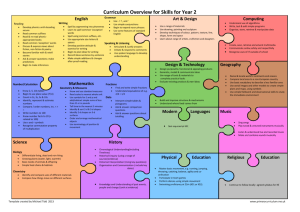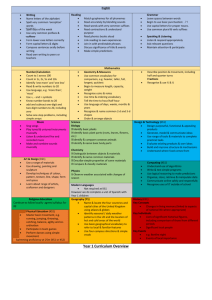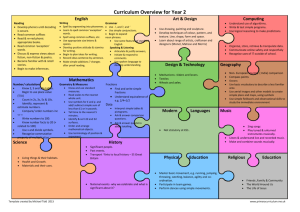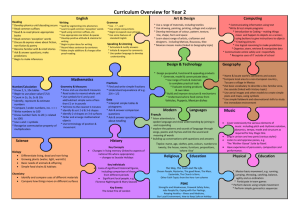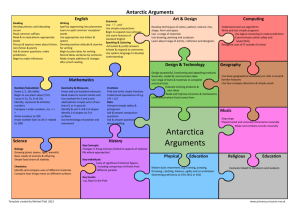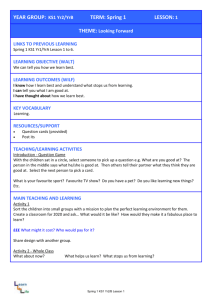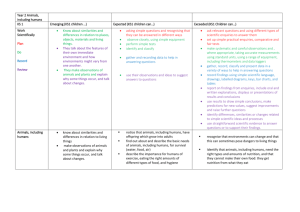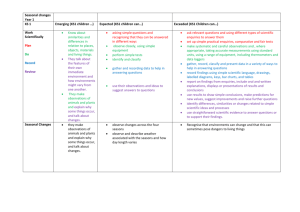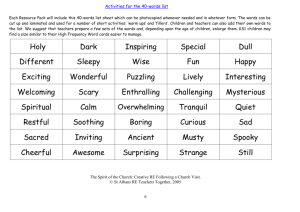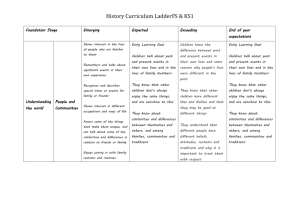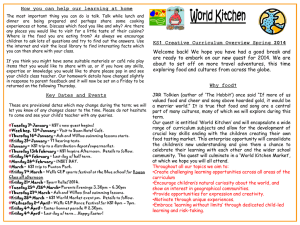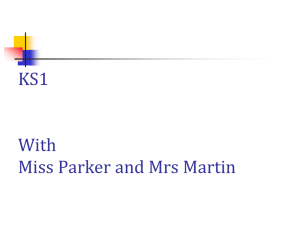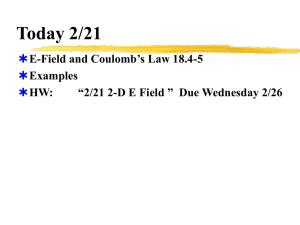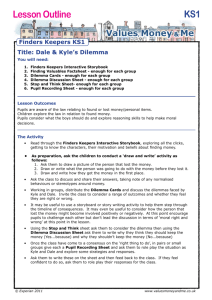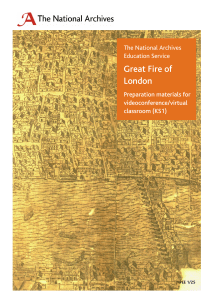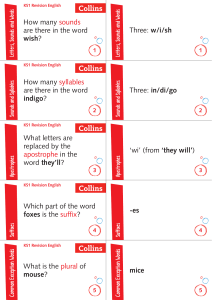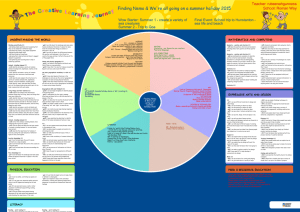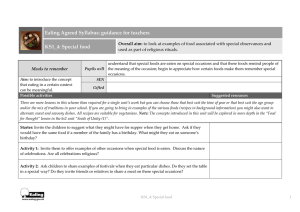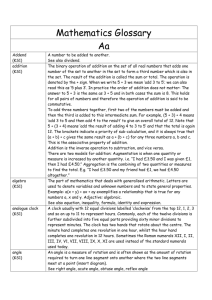Curriculum Overview Year 2
advertisement
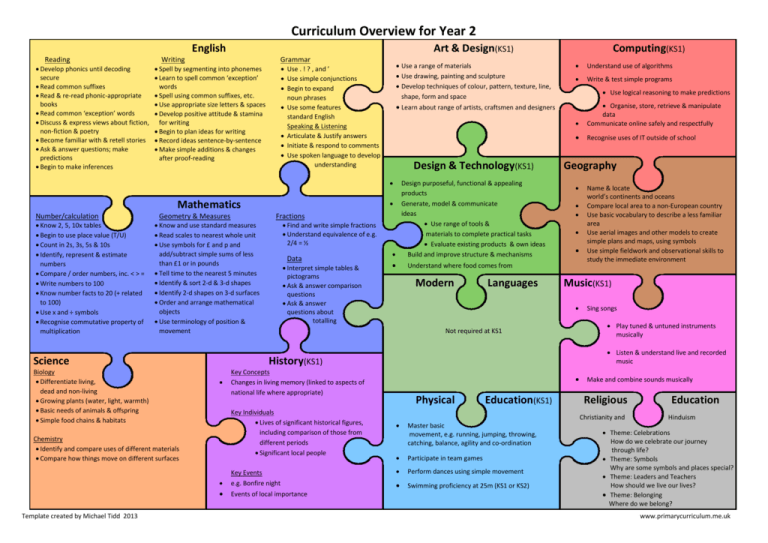
Curriculum Overview for Year 2 English Reading Develop phonics until decoding secure Read common suffixes Read & re-read phonic-appropriate books Read common ‘exception’ words Discuss & express views about fiction, non-fiction & poetry Become familiar with & retell stories Ask & answer questions; make predictions Begin to make inferences Art & Design(KS1) Writing Grammar Spell by segmenting into phonemes Learn to spell common ‘exception’ words Spell using common suffixes, etc. Use appropriate size letters & spaces Develop positive attitude & stamina for writing Begin to plan ideas for writing Record ideas sentence-by-sentence Make simple additions & changes after proof-reading Use a range of materials Use drawing, painting and sculpture Develop techniques of colour, pattern, texture, line, shape, form and space Use . ! ? , and ’ Use simple conjunctions Begin to expand noun phrases Use some features standard English Speaking & Listening Articulate & Justify answers Initiate & respond to comments Use spoken language to develop understanding Number/calculation Know 2, 5, 10x tables Begin to use place value (T/U) Count in 2s, 3s, 5s & 10s Identify, represent & estimate numbers Compare / order numbers, inc. < > = Write numbers to 100 Know number facts to 20 (+ related to 100) Use x and ÷ symbols Recognise commutative property of multiplication Geometry & Measures Know and use standard measures Read scales to nearest whole unit Use symbols for £ and p and add/subtract simple sums of less than £1 or in pounds Tell time to the nearest 5 minutes Identify & sort 2-d & 3-d shapes Identify 2-d shapes on 3-d surfaces Order and arrange mathematical objects Use terminology of position & movement Science Biology Differentiate living, dead and non-living Growing plants (water, light, warmth) Basic needs of animals & offspring Simple food chains & habitats Find and write simple fractions Understand equivalence of e.g. 2/4 = ½ Data Interpret simple tables & pictograms Ask & answer comparison questions Ask & answer questions about totalling Understand use of algorithms Write & test simple programs Use logical reasoning to make predictions Organise, store, retrieve & manipulate data Communicate online safely and respectfully Recognise uses of IT outside of school Design & Technology(KS1) Design purposeful, functional & appealing products Generate, model & communicate ideas Use range of tools & materials to complete practical tasks Evaluate existing products & own ideas Build and improve structure & mechanisms Geography Understand where food comes from Modern Languages Listen & understand live and recorded music Key Concepts Changes in living memory (linked to aspects of national life where appropriate) Key Events e.g. Bonfire night Events of local importance Sing songs Play tuned & untuned instruments musically Not required at KS1 Key Individuals Lives of significant historical figures, including comparison of those from different periods Significant local people Name & locate world’s continents and oceans Compare local area to a non-European country Use basic vocabulary to describe a less familiar area Use aerial images and other models to create simple plans and maps, using symbols Use simple fieldwork and observational skills to study the immediate environment Music(KS1) History(KS1) Chemistry Identify and compare uses of different materials Compare how things move on different surfaces Template created by Michael Tidd 2013 Fractions Learn about range of artists, craftsmen and designers Mathematics Computing(KS1) Physical Education(KS1) Make and combine sounds musically Religious Christianity and Master basic movement, e.g. running, jumping, throwing, catching, balance, agility and co-ordination Participate in team games Perform dances using simple movement Swimming proficiency at 25m (KS1 or KS2) Education Hinduism Theme: Celebrations How do we celebrate our journey through life? Theme: Symbols Why are some symbols and places special? Theme: Leaders and Teachers How should we live our lives? Theme: Belonging Where do we belong? www.primarycurriculum.me.uk Template created by Michael Tidd 2013 www.primarycurriculum.me.uk
